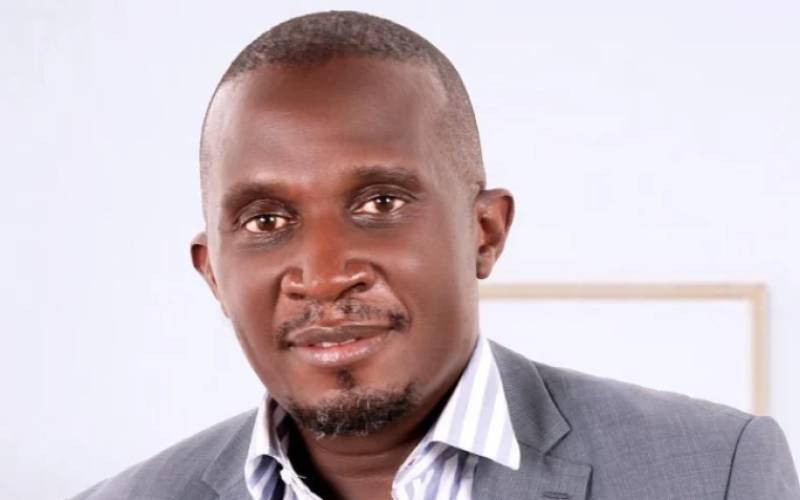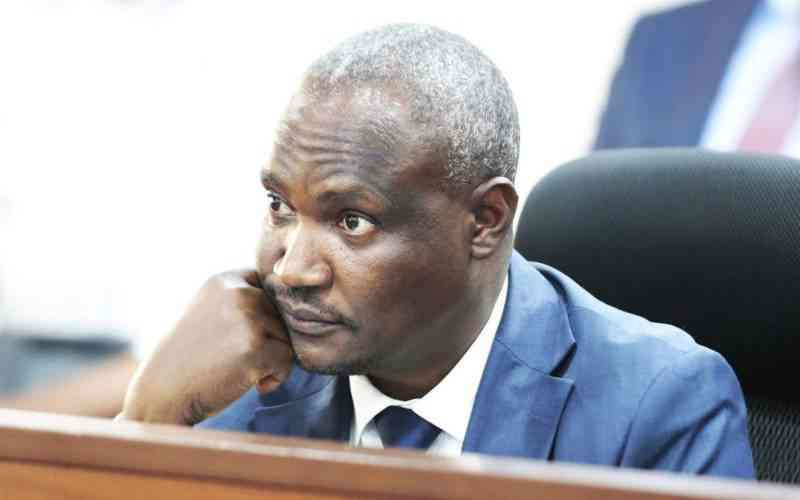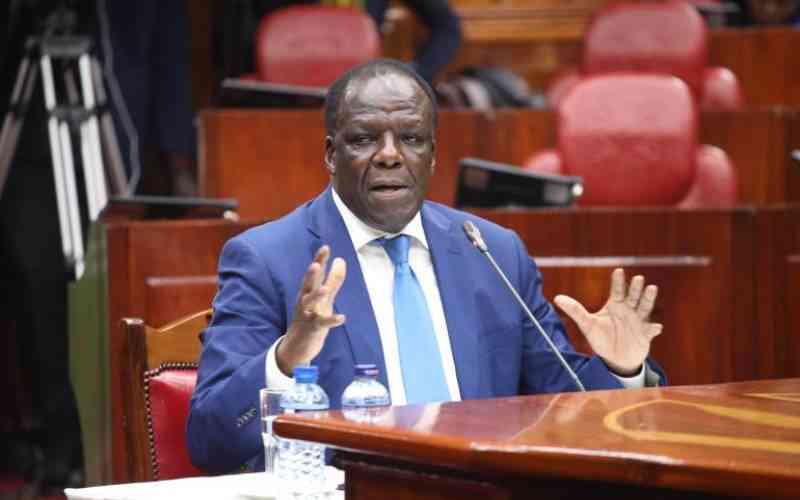
Makadara MP George Aladwa has welcomed the appointment of Martin Nang’ole as the Acting Managing Director of the Nairobi City Water and Sewerage Company (NCWSC),
describing it as a timely decision that could help restore confidence in the troubled utility.
Aladwa said the appointment signals “competence, continuity and recognition of professional merit at a time when Nairobi needs steady hands to guarantee uninterrupted water and
sewerage services.”
The NCWSC board chair Arnold Karanja on Thursday designated Nang’ole to steer the company in an acting capacity after the High Court blocked the extension of outgoing MD
Nahashon Muguna’s term beyond retirement.
“Following the resolution passed by the Board of Directors today, we are pleased to formally appoint you as the Acting Managing Director of Nairobi City Water & Sewerage
Company Limited, effective from 26 September 2025.”
The court had ruled that Muguna’s reappointment beyond December 2025 contravened the law, directing NCWSC to immediately begin a competitive recruitment process for a
substantive Managing Director.
In a resignation letter from Muguna dated September 26, seen by the Standard states that he is giving his 2025 annual leave days as part of the notice.
“The decision has been reached after careful consideration, and I believe it is in the interest of both myself and the organisation at this time. I have resigned to pursue other
endeavors,” said Muguna.
The change in leadership comes at a time when Nairobi is facing a persistent water crisis and mounting sanitation challenges.
Despite being home to nearly 5 million people, the capital continues to struggle with rationed water supply, unreliable distribution, and widespread illegal connections.
Stay informed. Subscribe to our newsletter
Large sections of Eastlands, Embakasi, and parts of the informal settlements experience dry taps for weeks, forcing households to rely on expensive water vendors. Meanwhile,
burst pipes and raw sewage discharge into rivers and streets have become a common sight, raising public health concerns.
Business owners and residents have long criticized NCWSC for delayed fault response, unclear billing systems, and weak oversight that has enabled inefficiency and corruption.
Experts warn that without strong reforms and investment in infrastructure, Nairobi risks facing a full-blown water and sanitation crisis.
It is against this backdrop that Nang’ole, formerly NCWSC’s Director of ICT, takes over in an acting capacity.
Aladwa, a former mayor of Nairobi and long-serving MP, said he expects Nang’ole’s leadership to bring “better service, greater transparency and renewed trust in NCWSC.”
He also emphasized that while the appointment is not political, it reflects recognition of competent professionals from the Luhya community.
“We are proud to support Nang’ole. We believe he is well placed to deliver practical improvements quickly: shorter fault response times, clearer billing and connection processes,
and stronger systems that reduce opportunities for mismanagement,” Aladwa stated.
He urged the Nairobi County Government to support technocratic and transparent leadership by providing resources and institutional backing.
“To the business community: we pledge to partner with you in constructive oversight. To Nang’ole: we offer our support and we will watch your early actions with keen interest particularly on quick wins that improve supply reliability and customer service in wards where our people live and work.”
The acting MD faces an uphill task of steering the utility through public skepticism, infrastructural decay, and financial strain.
Analysts note that Nairobi’s demand for water far outstrips supply, with production capacity estimated at about 525,000 cubic meters per day against a demand of 850,000 cubic
meters. Chronic underinvestment, aging infrastructure, and unchecked illegal connections have compounded the gap.
Sewerage coverage is equally dire, with only about 40 percent of Nairobi households connected to the sewer system.
Informal settlements remain the most underserved, often relying on unsafe sanitation methods that pose serious environmental and health risks.
Nang’ole is credited with spearheading digitization initiatives within the company, including automation of service applications, streamlining billing, and introducing data-driven
planning. These efforts, Aladwa noted, “are already part of NCWSC’s progress story.”
“His background in applying ICT to improve utility operations is exactly what Nairobi needs to boost revenue collection, reduce leakages and make customer service more
transparent,” the MP said.
During his tenure as ICT Director, Nang’ole was associated with initiatives that digitized customer engagement and reduced manual processes. These reforms have been welcomed
by the business community, which relies heavily on efficient water and sewerage services for daily operations.
Aladwa described him as “a young, vibrant and highly qualified technocrat who has served NCWSC with distinction.”
He reiterated that many Nairobi residents hope the appointment will mark a shift toward accountability and efficiency at the utility.
“This appointment is not just about filling a vacancy. It is about restoring trust and ensuring that Nairobi residents finally get the reliable water and sanitation services they deserve,”
said Aladwa.







